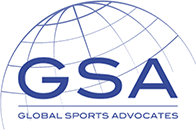
You were excited to sign what seemed like a straightforward NIL agreement, expecting compensation for your social media posts and appearances. Instead, you’ve received notice that the new College Sports Commission has rejected your deal. The agreement you thought would help fund your education could now put your athletic career at risk.
At Global Sports Advocates, our experienced college sports attorneys understand the confusion and frustration athletes face as enforcement standards shift. We help student-athletes protect their eligibility, negotiate compliant NIL agreements, and challenge unfair enforcement decisions.
About the College Sports Commission
The College Sports Commission is an independent regulatory agency formed to oversee and enforce rules related to NIL agreements and athlete compensation. It was established as part of the $2.8 billion House v. NCAA settlement between the NCAA, major athletic conferences, and former/current athletes who alleged they were denied fair compensation, which was approved in 2025.
Starting June 7, 2025, all NCAA Division I student-athletes must report any third-party Name, Image, and Likeness (NIL) deals that total $600 or more. These deals will be submitted through NIL Go—an online portal overseen by the College Sports Commission.
The Commission will use NIL Go to evaluate whether each deal:
- Involves a valid business purpose
- Offers reasonable compensation for the work provided
What Is Considered a Valid Business Purpose?
Since the launch of the Commission’s NIL Go clearinghouse, over 1,500 NIL deals involving NCAA student-athletes have been reviewed. Many have been rejected for failing to serve a “valid business purpose.”
Under the new rules, an NIL deal must be based on a legitimate commercial relationship between the student-athlete and the business or organization providing compensation. The Commission defines valid business purpose as an arrangement in which a business offers goods or services to the public for profit and uses the athlete’s name, image, or likeness for actual marketing or promotional reasons. This includes:
- Endorsement deals with apparel companies, restaurants, and other brands
- Promotional work for businesses with paying customers
- Educational camps that offer value to participants
- Partnerships via collectives acting as marketing agencies
Common reasons for rejection of a proposed NIL deal include:
- Collective-backed deals designed only to funnel cash to athletes
- Fundraising events with no commercial product or service
- Merchandise sales aimed solely at generating athlete income
Ask yourself: Would this business pay someone without athletic fame for the same service? If not, the deal probably won’t pass.
If an NIL deal is rejected, you can’t proceed with the agreement as written without risking your athletic eligibility. You must either:
- Work with the payor to renegotiate the deal and resubmit it to NIL Go
- Cancel the deal and refund any money already received
- Appeal to neutral arbitration
Challenging NIL Deal Rejections Via Arbitration
If you disagree with the decision, there are two arbitration paths:
- Wait for the Commission’s formal arbitration system to be finalized
- Proceed immediately through the existing JAMS (Judicial Arbitration and Mediation Services) process
Arbitration requires strong documentation proving a valid business purpose. Legal counsel can make or break your case. With years of experience defending student-athletes, Global Sports Advocates has successfully handled eligibility disputes, NIL challenges, and contract negotiations. We know how to build cases that demonstrate legitimate business relationships, gather the documentation arbitrators need to see, and present arguments that protect both your current deals and future opportunities.
When it comes to representing college athletes, our record speaks for itself. In June 2025, Chambers USA ranked Global Sports Advocates among the nation’s top sports law firms for the fourth year in a row. Founding Partner Paul Greene earned a prestigious Band 1 ranking, recognizing him as one of the country’s leading sports lawyers.
